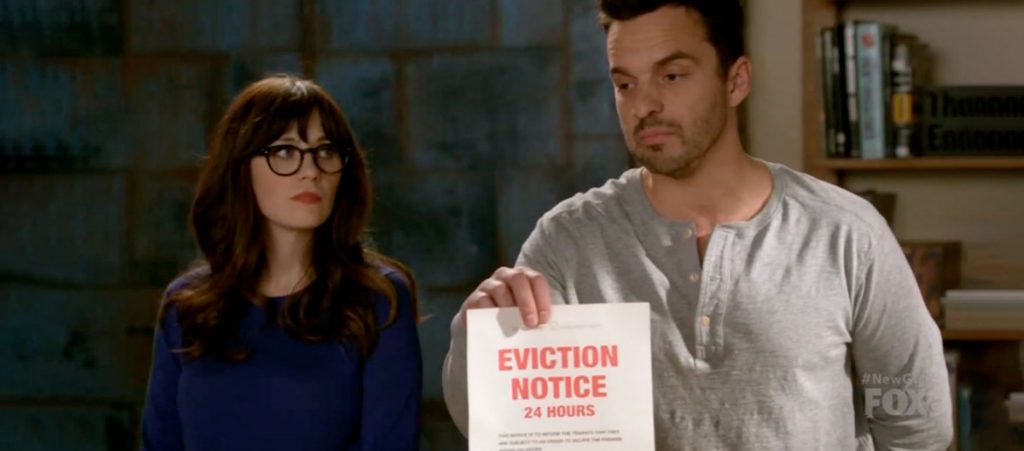
The rental crisis happening across the country right now really is the cherry on top of this cost-of-living nightmare we have found ourselves in. We know we don’t need to tell you how bad it is. But, to put it bluntly, if you’re struggling to find somewhere affordable to live right now, what the fuck are you supposed to do? We asked a few experts for advice that goes beyond move-in-with-family (which is not an option for everyone, anyway) or dip into savings. The good news? There are a few options that might take the pressure off. The bad news? Fixing this for all Australians in the long term is going to require a lot of political will.
What’s causing the rental crisis?
There are a lot of factors that are currently making the Australian property, and therefore rental, landscape such a mess: the pandemic, record low vacancies, the rise of interest rates, cost-of-living, our taxation system… But according to the Australian Greens MP for Griffith (Qld) Max Chandler-Mather, this seemingly complex situation can actually be summed up and understood in a very simple way: “The entire property system is designed to generate the maximum amount of profit for banks and property developers.”
Truly, that’s the crux of the issue. It’s why housing policies and solutions prioritise current and potential homeowners – leaving renters, 60% of whom are under 30, out in the lurch. Understanding this is important if we really want to fix the problem and stop it from continuing to happen again, and again, and again…
More on that in a moment. First, some practical advice to get you affordably housed.
Tips for securing an affordable rental
We spoke to Kristin O’Connell from the Anti Poverty Centre who is also currently trying to find an affordable place to rent. Some strategies and tips to try include:
- Looking for rental households who are looking to transfer their lease or get replacement housemates;
- If you have the luxury, applying with friends who have higher-paying jobs to improve your chances;
- Talking to your current real-estate agent about looking out for places for you. You can tell them your needs so that the search is not all on you. Kristen says it can’t get to get your agent to care about you, personally: “It humanizes you to the people who already have some connection to you.”
- A boring one, but have your applications ready to go and thoroughly filled out – First National Real Estate told the ABC that an estimated 50% of applications are not filled out completely.
What to do if you are in crisis?
If it looks like you could be without a place to live, and you can’t stay with friends or family, Kristen says be ready to apply for support. “It is worth contacting support services and looking at public housing. There is a decent chance you’ll be turned away because of high demand, but the reason it’s worth checking and to chase up your application is you do not know what’s happening with the waiting list. When you don’t have a secure housing option, that moves you up the list.”
Kristin also says if you’re already on any type of welfare payment, keeping your records up to date is very important. “Login to Centrelink and check that all of their information about income and assets is correct, especially if you have sporadic income.” While real estate agents might discriminate against you for being on welfare, it’s important to see the process through. “Yes, they are discriminating against you and yes, they are trying to find another tenant, but that doesn’t mean they will,” she says.
If you do find yourself without a place and don’t have anywhere to redirect your mail, Kristin suggests looking into co-working spaces. “There are actually co-working spaces that will let you use their address and have a mailbox for $70 a month.” This becomes especially helpful when you need a mailing address to help fill out applications needed to find a permanent address.
Just returned my keys & had to fill out a form for my bond.
— kristin (she/her) (@kristin8X) April 3, 2023
I said I don’t have a forwarding address and was told it doesn’t matter cos it’s an old form.
The real estate agent laughed when I said “From before so many people were being made homeless by the property market?” 😑
What if you want to stay in your current rental?
Tenants Victoria advise that knowing your rights is the most important leverage if you want to extend your current lease. If you can avoid looking for a new rental in the current shitshow, you’ll be better off!
- Remember that a landlord cannot evict you for no reason in Vic, ACT and Qld (check with your relevant tenants board for the no-grounds eviction laws specific to your location). This will soon be legislated in NSW too, but for now a landlord can still boot you for no reason
- In NSW, ACT, Tas, and SA rent increases are limited to once every 12 months for periodic (continuing) leases. In QLD, VIC, WA, and NT, it’s every six months
- After you’ve finished your first fixed-term lease, the rental agreement continues on the same terms until you choose to leave, or they give you a form explaining why they want you to leave. You can always choose to challenge that notice.
Don’t feel guilty for having standards
Every single person we spoke to for this article said that in order to get through this crisis, you have to check-in and look after yourself. It can be easy to become overwhelmed by the financial strain and the stress of trying to find a new place to live. However, there are things you can do to help protect your mental wellbeing during this time. It’s important to be kind to yourself throughout this journey.
Kristin says there are two things to remember in this process: it is completely justified to have standards when looking for a home and however difficult this journey may be, it is not because of you.
Standards like staying close to your community, does not mean that you are ‘too picky’. Kristin explains: “In my case, the reason that I need to live where I live is because it’s where my doctors are. I looked at places far away, and they’re not that much cheaper and then over a two hour train ride from my doctors. Yes, it’s a bit cheaper, but then I know what I will do is cancel my psych appointment. There is so much value in our social fabric and that goes from the proximity to your friends and your family. It’s a really intangible part of our daily life that actually means a lot to people. If you’re not excited to move somewhere new and different then pulling yourself away from that has mental health costs.”
It’s not you, it’s the market. Don’t buy into the bullshit peddled by politicians and property developers that moving ‘further out’ is a perfect solution to this problem. “This is the result of political decisions that governments have made over decades. It’s not our fault that they have outsourced our right to access shelter, to private landlords who are only interested in maximizing their short and long-term profits, off that shelter.”
lol anyone who has worked for a developer, a bank and the property industry lobby should be nowhere near a housing affordability council https://t.co/nujZo9nvHC
— Alistair Sisson (@AlistairSisson) December 19, 2022
How do we actually fix this?
Now let’s revisit the cause of the problem. Chandler-Mather is encouraging everyone to think about the bigger picture at play: “We have to think about how do we undo that system that treats housing as a commodity, and start to treat it instead as: how do we most efficiently and fairly provide a home to everyone in this country? And it certainly isn’t the way the current system works.”
He believes we can achieve this equity and efficiency with three steps:
- End financial incentives for investors: “We need to end negative gearing and capital gains tax concessions that make it easier for an investor to buy their tenth house than it is for someone to buy their first home.”
- Investing in social housing, a system that has been working in Europe for decades: “I visited Vienna in 2019, just before the pandemic. Sixty percent of that city live in some form of public or community or rent-controlled housing. It is one of the most beautifully designed cities in the world, with really well-designed apartments, really low rates of housing stress, and a housing system that ensures that anyone who needs one ultimately gets a home. And so all we’re proposing is a system like that.”
Not to be confused with public housing (reserved for people on very low income), social housing is available to anyone with rent set at proportion of their wages. “Even though the rent is capped at 25% of your income, imagine being able to provide housing for teachers, nurses, even professors and academics? And that’s money that can be invested into more housing or other programs.” - Better rental regulations and tenancy protections: “We do need rent caps and we need to start treating renters as genuine citizens with equal rights. And that means being able to stay in their home long term without being evicted for no reason. Being able to set down roots and, and also know that when they get to the end of their lease, the landlord isn’t able to put up their rent by as much as they want.”
Compared to how Australia’s housing system already works these changes can sound radical. But if we continue without serious changes, more and more people will face housing insecurity. What sounds scarier: taking on ambitious reform, or increased rates of homelessness? “The people that are gonna generate the most fear, saying ‘This doesn’t work’ or ‘This is gonna crash the economy’, just think about who’s saying that. Because if it’s a property developer or a property investor or someone from the big banks or someone in the background of that sort of political establishment, of course they’re going to say that. “
A lot of the people invited to speak on housing and property in the media have a vested interest – they have something to lose if things change, although not more than the rest of us. “The coded message they’re actually giving is, we don’t wanna lose power, influence. And they’re right! In their own world, their profit margins are gonna decrease a bit. They are gonna earn a little bit less money. But ultimately politics is about serving the common good. And right now in Australia, especially when it comes to housing, too often it just ends up serving the interest of the small few.”
We’ll admit, when we started working on this article we expected to be able to uncover more practical, immediate tips to help keep you housed. The lack of real options and leverage for renters feels hopeless, very scary and ultimately kept coming back to one thing: policy change is necessary. We can’t lifehack our way into homes, but real progress is possible if we push for bigger changes to come from the top down.
So our last tip is this: when you have the time and mental space, write to your local, state and federal MPs about your experiences. Urge them, as your representative, to try something new to guarantee your current and future housing security. Tips and short term solutions will only get us so far, they won’t be able to tide us over forever.




Comments are closed.